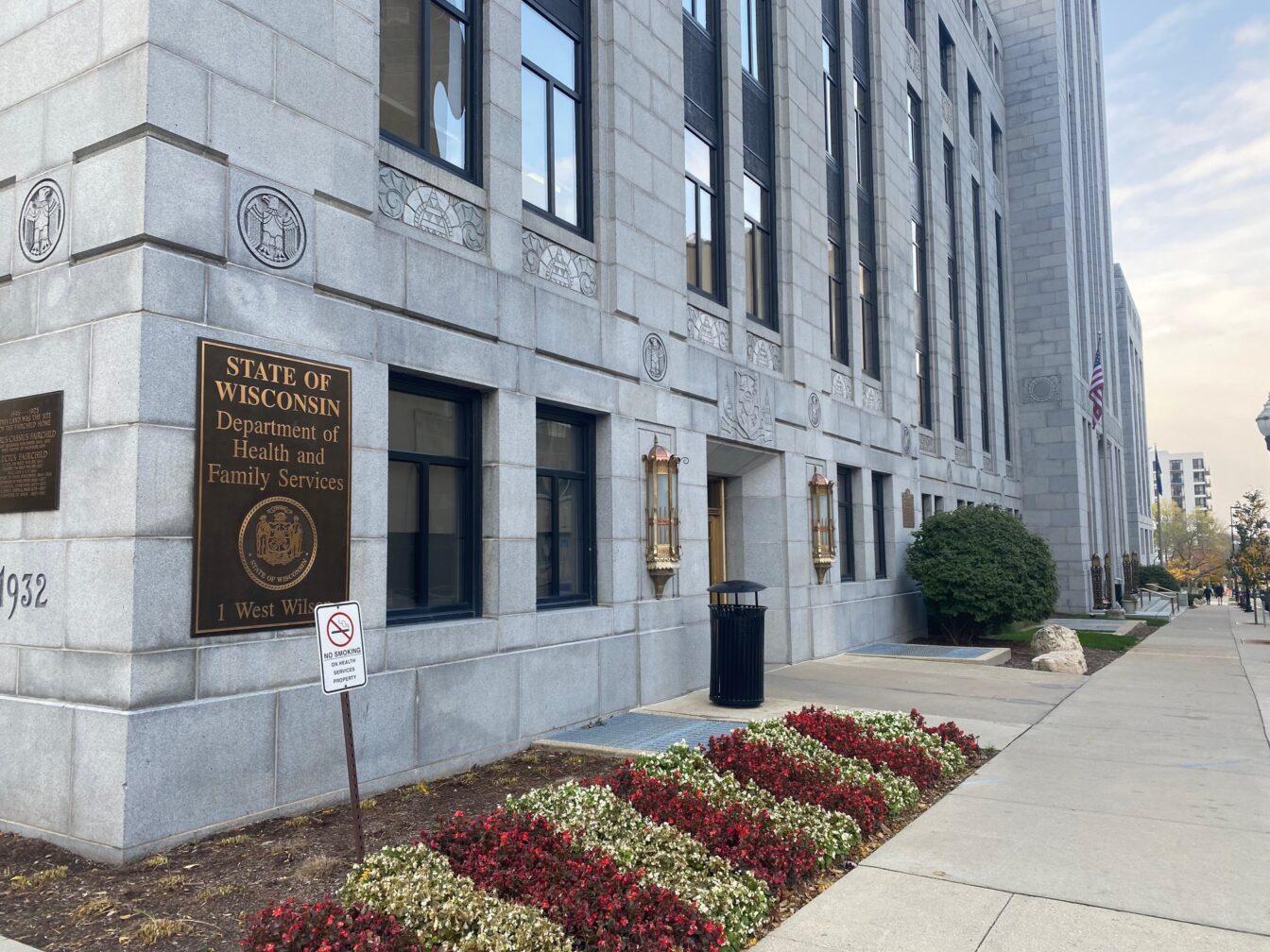The Wisconsin Department of Health Services awarded $830,000 in Vaping Prevention and Treatment Initiative grants to 13 organizations across the state. The grants are intended to address impacts of vaping in teens and young adults over the next two years, according to a Feb. 15 press release.
The funding comes from Wisconsin’s $14.7 million settlement with Juul Labs to be disbursed over five to 10 years, according to the Department of Health Services. Wisconsin’s settlement with Juul, on the basis of targeted marketing of e-cigarette products to underage consumers, was originally announced September 2022.
DHS Tobacco Prevention and Control Program spokesperson Gina Larsen said much of Wisconsin’s focus in the next few years will be on this cohort of 18 to 24 year olds, who may be in college, starting to work or beginning family lives while addicted to nicotine.
“This … young adult group between ages of 18 and 24 is distinctive in their need for vaping prevention and cessation services because they were the first cohort to be specifically targeted by these big tobacco, big vaping companies,” Larsen said.
Since the founding of Juul Labs, Inc. in 2015, e-cigarette use among Wisconsin teens more than doubled. Compared to 7.9% of Wisconsin high school students in 2014, 20.1% of high school students reported using e-cigarettes in 2018, according to the Youth Tobacco Survey.
E-cigarette use for Wisconsin high school students was most recently measured at 10.5% in 2022, and vaping rates are decreasing first-year students at the University of Wisconsin, according to 2022 AlcoholEdu data.
But people who were in middle and high school during the peak of Juul’s prevalence in 2018 are still experiencing its impacts.
Data from the 2021 National College Health Assessment showed 1 in 3 UW–Madison undergraduates and 1 in 7 of professional and graduate students have used tobacco or nicotine delivery products at least once, according to University Health Services.
“Young people should know that vapes do not contain the same amount of nicotine as, let’s say, their grandpa’s old fashioned cigarettes,” Larsen said. “It is a much higher dose and it’s specifically designed to get young people addicted and to spend their money on vapes and stay addicted for the long term.”
‘There’s just no other option’: Madison Ukrainians lead support as third year of war encroaches
“The perfect storm”
The Northwest Wisconsin Lung Health Alliance, which covers six counties in northwest Wisconsin, is one of the organizations that received settlement funding based on the goal to support young adults. NWLHA coordinator Charmaine Swan said the founding of Juul created unprecedented conditions for teens to become addicted to nicotine.
Compared to combustible cigarettes, which are odorous and more difficult to mask, the proliferation of e-cigarettes made nicotine use overly convenient for young consumers. Juul products also have a high nicotine solution that has been specifically marketed toward youth, Swan said.
“What’s unfortunate about it — and why I call it the perfect storm — is not only are the devices intended to be made appealing to us, they come in thousands of flavors, they’re ‘disposable,’” Swan said. “It’s created this perfect storm for addiction.”
High rates of nicotine addiction among American teens have created a need to study how nicotine use impacts the adolescent brain.
The University of Wisconsin Center for Tobacco Research and Intervention was a recipient of 2023 Juul settlement funds. UW-CTRI used its grant money to conduct research about the practices and beliefs of youth and young adults related to e-cigarette use, according to UW-CTRI project manager Karen Conner.
UW-CTRI’s research revealed strong associations between nicotine use early on in life and the onset of mental illness, Conner said.
“We know that nicotine alters the adolescent brain,” Conner said. “The more nicotine youth are using increases the likelihood of mood disorders, stunted learning, sleep problems — and all of these issues can exacerbate feelings of anxiety or depression.”
Largely, scientists studying the risks of vaping have to rely on shorter-term research, since e-cigarette devices have only been prevalent in the United States for the past 15 years, according to a 2023 report from the American Heart Association.
But existing research decidedly demonstrates e-cigarette use poses health risks. Future clinical studies will help determine long-term impacts on the heart, blood vessels and lungs, according to the American Heart Association, but health experts continue to emphasize that there is no safe amount of vaping.
“Just because we don’t know how unhealthy it is yet doesn’t mean it’s healthy,” Swan said. “The thing we should all be breathing is clear air, period.”
‘Profit off of play’: Evolution of NIL impacts all universities today, including UW
Recovery efforts on campus
Given these known risks and the particular vulnerabilities of 18 to 24 year olds, Public Health of Madison and Dane County identified an opportunity to utilize its partnership with UW’s University Health Services, according to PHMDC public health specialist Myranda Phelps.
After receiving Juul settlement funds in 2023, PHMDC subcontracted UHS to provide vaping education, prevention and cessation efforts on campus, Phelps said in an email statement to The Badger Herald.
UHS assistant director for high-risk drinking prevention Jenny Damask said Juul settlement funding helped provide groundwork for prevention and cessation services at UW.
“The Juul settlement money was huge in us taking a better look at the landscape around nicotine on campus, and was a catalyst for us even applying [for additional grant money],” Damask said. “We had a lot of support to do that.”
Based on these findings, UHS implemented a media campaign and campus events to help make behavioral health services more accessible to those looking to reduce or quit nicotine use.
UHS’ “No Nicotine November” campaign in November 2023 combined social media outreach, quit kit distribution and a Bascom Hill display for the “Great American Smokeout,” according to previous reporting from The Badger Herald. The theme of the campaign was “A no to nicotine is a yes to yourself” to positively frame quitting, based on motivations students expressed in surveys and interviews.
Feedback from the “No Nicotine November” campaign and other initiatives coupled with outdated campus policies allowed UHS to apply for a Truth Initiative grant to support the development of tobacco- and nicotine-free policies on campus. Under current policy, UW is smoke-free in indoor spaces and near building entrances, with some exceptions. UW was selected to receive funding from February 2024 through June 2025.
“It’s going to be a challenge in a lot of ways to review that policy, but it’s been up for review for quite a while, we just haven’t pulled a group together to look at it,” Damask said. “So this gives us the excuse to bring a bunch of people together to look at this policy and make it stronger and also make it actionable.”
‘Profit off of play’: Evolution of NIL impacts all universities today, including UW
The positive side of quitting
Policymaking aside, UHS is looking for other ways to engage students in the issue of nicotine cessation. Part of the Truth Initiative grant will fund positions for two nicotine free student ambassadors for UHS, Damask said. These student employees will take part in community engagement and outreach efforts to hear from their peers and distribute resources.
“I think that a lot of the things we think might happen by changing a policy may or may not be true, and so hearing from students will be really powerful,” Damask said.
In addition to new initiatives, UHS will continue to offer free, confidential counseling to help students quit nicotine, tobacco and vape products. Health providers work with students to create personalized plans which may include behavioral strategies, nicotine replacement products and medication assistance.
Quitting nicotine is challenging. Often, people who try to quit undergo multiple attempts before succeeding, but it’s important to keep trying, Damask said. The more attempts it takes to quit, the more likely people are to quit forever.
This is because people who quit nicotine build “quit confidence,” which helps them build resilience and self-efficacy, according to Larsen.
“It’s a life skill,” Larsen said. “It might be unfortunate that they become addicted to nicotine, but using resources to quit is actually something that can affect them positively in all other parts of their lives.”
This holistic approach is reflected in the kinds of organizations that received 2024 settlement funding from DHS. Grantees are not only those involved in commercial tobacco prevention and control, Larsen said. Instead, settlement funds have been used to address a variety of needs, including mental health, education and general life skills training.
The more health experts understand about nicotine and how impacted young adults are finding resilience, the greater effort there is to adapt to shifting support landscapes to “meet them where they’re at,” Larsen said.
“It’s following that larger vision of meeting young people where they’re at, where they already gather, where they’re already interacting with others, and delivering these prevention and cessation services to them, in the life they’re currently living,” Larsen said. “I think that shows respect for the young people who’ve been targeted by big tobacco.”
Resources regarding nicotine cessation:
- Students can schedule an appointment through UHS by calling 608-265-5600.
- View options available on and off campus through UHS’s Quitting Nicotine webpage.
- UW’s Center for Tobacco Research and Intervention provides a free service to help people quit smoking, vaping or other tobacco use through the Wisconsin Tobacco Quit Line. Call 800-QUIT-NOW.
- For a limited time, participants may receive 8 weeks of free nicotine replacement therapy. Text READY to 34191.
- This is Quitting Text Line is a free and anonymous text messaging program from Truth Initiative designed to help young people quit vaping. Text DITCHVAPE to 88709.
- American Indian Quit Line offers culturally tailored cessation programs. Call 888-7AI-QUIT.
Editor’s Note: This article was updated to correct a transcription error in a quote from Charmaine Swan.








